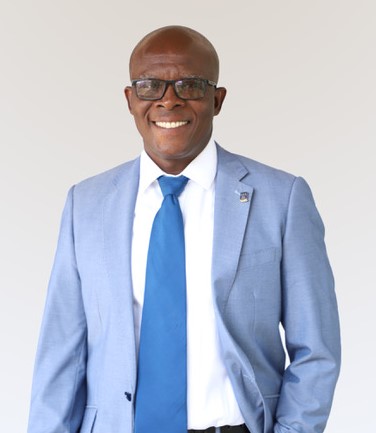Illegal Activities Hampering Potentials for Maritime Domain Business - Marine Scientist
Marine Scientist and Director of the University of Ghana’s Marine Resources Centre, Prof George Wiafe has decried losses being made in the maritime domain business due to illegal activities despite the sector’s huge potentials.
Prof Wiafe, who is also the Project Manager of the University of Ghana’s consortium of the GMES-AFRICA programme, has called for more awareness creation on happenings surrounding the maritime domain across Africa to get more young people involved and interested in the marine sector.
He made this known during a weblive, organized on September 16, 2020 by GMES and Africa and Mercator Ocean International, via the website and the RS of La Tribune Afrique. The online meeting which had various stakeholders in the marine sector across Africa, focused on the opportunities and potentials that mobile maritime applications based on EO data can represent for African entrepreneurs and young startuppers.
The live event is for the speakers to detail the role of the GMES and Africa program and its pan-African component; and to illustrate these potentials with concrete examples of cell phone applications.
According to Prof George Wiafe, the University of Ghana’s consortium for the GMES AFRICA project in collaboration with the private sector is making efforts to educate start up businesses and individuals at the regional and local levels, and that through that strategy, people are more exposed to the opportunities that exist. “From our engagement with the youth at the local level, a lot more youth are interested but the necessary resources and skills are unavailable”, he added. He proposed an extension of an Innovation Challenge, which has been initiated in the West African region under the GMES and Africa programme to other African regions to afford the youth who are not into IT the ability to develop tools and services for the maritime sector.
Panelists on the web live event included the Commissioner for Human Resources, Science and Technology (HRST) at the African Union Commission, Professor Sarah Anyang Agbor, Director for Human Resources, Science and Technology at African Union Commission, Dr. Mahama Ouedraogo, the GMES and Africa Support Program Coordinator, and Space Science Expert at the African Union Commission, Dr. Tidiane Ouattara, Dr. Issa Maman-Sani, Director for Environmental & Social Safeguards & Compliance Department at the African Development Bank, Arnauld Blondet, Technocentre, Innovation Director for AMEA at Orange and Mr. Michael Soli, Co-Founder & Chief Executive of Polymorph Labs Ghana Limited.
The panel of speakers had to answer questions from participants while presenting concrete development opportunities.
Global Monitoring of Environment and Security (GMES) and Africa is an Earth Observation programme of the African Union jointly established with the European Union, and designed to strengthen capacities in Africa for the optimal exploitation and utilisation of Earth Observation systems, data and technologies towards the continent’s sustainable development.
Prof Wiafe, who is also the Project Manager of the University of Ghana’s consortium of the GMES-AFRICA programme, has called for more awareness creation on happenings surrounding the maritime domain across Africa to get more young people involved and interested in the marine sector.
Prof George Wiafe,
GMES (Marine) in West Africa Project Manager, University of Ghana
He made this known during a weblive, organized on September 16, 2020 by GMES and Africa and Mercator Ocean International, via the website and the RS of La Tribune Afrique. The online meeting which had various stakeholders in the marine sector across Africa, focused on the opportunities and potentials that mobile maritime applications based on EO data can represent for African entrepreneurs and young startuppers.
Panelists on the Weblive
The live event is for the speakers to detail the role of the GMES and Africa program and its pan-African component; and to illustrate these potentials with concrete examples of cell phone applications.
According to Prof George Wiafe, the University of Ghana’s consortium for the GMES AFRICA project in collaboration with the private sector is making efforts to educate start up businesses and individuals at the regional and local levels, and that through that strategy, people are more exposed to the opportunities that exist. “From our engagement with the youth at the local level, a lot more youth are interested but the necessary resources and skills are unavailable”, he added. He proposed an extension of an Innovation Challenge, which has been initiated in the West African region under the GMES and Africa programme to other African regions to afford the youth who are not into IT the ability to develop tools and services for the maritime sector.
Panelists on the web live event included the Commissioner for Human Resources, Science and Technology (HRST) at the African Union Commission, Professor Sarah Anyang Agbor, Director for Human Resources, Science and Technology at African Union Commission, Dr. Mahama Ouedraogo, the GMES and Africa Support Program Coordinator, and Space Science Expert at the African Union Commission, Dr. Tidiane Ouattara, Dr. Issa Maman-Sani, Director for Environmental & Social Safeguards & Compliance Department at the African Development Bank, Arnauld Blondet, Technocentre, Innovation Director for AMEA at Orange and Mr. Michael Soli, Co-Founder & Chief Executive of Polymorph Labs Ghana Limited.
Professor Sarah Anyang Agbor,
Commissioner for Human Resources, Science and Technology (HRST, African Union Commission
The panel of speakers had to answer questions from participants while presenting concrete development opportunities.
Global Monitoring of Environment and Security (GMES) and Africa is an Earth Observation programme of the African Union jointly established with the European Union, and designed to strengthen capacities in Africa for the optimal exploitation and utilisation of Earth Observation systems, data and technologies towards the continent’s sustainable development.






Comments
Post a Comment